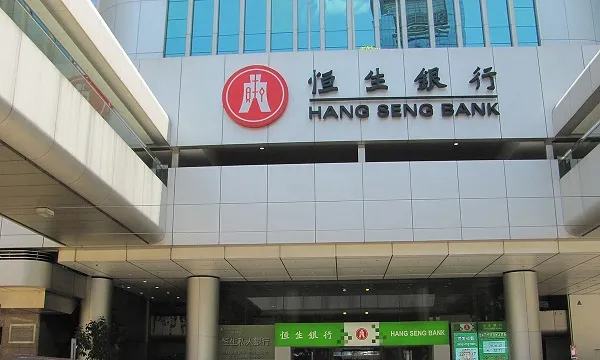
Crisis speeds up online banking take-up twice fold
Lenders scramble to ramp up digital offerings amidst a new normal of remote banking.
Change had come to Hong Kong’s banking industry a long time ago with the dawn of virtual banking, but never before had the lenders’ tried-and-tested ecosystem been shaken as much as it had during the ongoing pandemic crisis. Now banks are scrambling to fill up the cracks in their digital servicing capabilities to continue operations amidst a new world of face masks, health precautions, and social distancing—or else say adieu.
Despite the ongoing hard times, many banks reported an increase in their headcount compared to data from Hong Kong Business’ 2019 licensed rankings. Second placer Bank of China Hong Kong (BOCHK) reported a 2.56% rise in its employees to 12,592 as of April 2020. Standard Chartered (Hong Kong), who nabbed the fourth spot, saw its employee count jump 8.3% to around 8,500 from only approximately 8,000 in 2019; whilst fifth placer Bank of East Asia (BEA) Hong Kong reported 5,564 employees in the city, a 3.5% rise from the 5,376 in last year’s rankings. Further, Dah Sing Bank also reported a 2.4% YoY rise to 2,970 as of end-2019 over its 2018 figures.
However, many of these numbers were reported before the full effect of the pandemic was expected to be felt, which could only begin to reflect by end-Q3 2020 or even Q1 2021. Already, many of the city’s biggest financial institutions saw their numbers contract since the past year or have signaled their intention to cut employee count. Chief amongst them is the Hong Kong and Shanghai Banking Corporation (HSBC), who retained the top spot with 31,000 employees in Hong Kong as of 31 December 2019.
Since then, the lender announced its plan to axe 35,000 workers globally from its more than 232,957-strong global fleet as part of its third major restructuring in a decade. Just in Q1, HSBC saw its pre-tax profits plummet 48% to $3.2b in Q1.
"You will have seen that our profits fell in the first quarter, and virtually all economic forecasts point to challenging times ahead,” Quinn said in a memo sent to employees in June, adding that the layoffs are “even more necessary today.”
Other lenders also saw their headcounts shrink. Citi Hong Kong, who remained in sixth place, saw its numbers decline by 300 or 6.67% to 4,200 as of Q2 from approximately 4,500 in Q1 2019. OCBC Wing Hang saw its headcount marginally fall by 1.46% to 4,105 from 4,165 last year. The smallest licensed bank listed—Tai Sang Bank—lost 5 employees since 2018, totaling 33 staff as of 31 December 2019.
Overall, the number of employees across 19 local licensed banks rose marginally by 1.87% to 92,545 as of April 2020 compared to only 90,844 in 2019, on the back of dramatic increases and contractions across lenders.
Near, far, wherever you are
The past few months saw lenders rolling out a plethora of new or improvements to their digital banking services as they strive to maintain close ties with their customers despite the physical distance imposed by lockdowns across the city.
Although BOCHK kept its more than 190 branches open, the bank actively encouraged customers to access services online by rolling out additional services.
“We have introduced a number of fee concessions for our electronic services and extended service hours of certain online banking services, such as forex exchange, setting up of time deposits, opening of savings and investment accounts, and activation of mobile banking and internet banking services,” a spokesperson from BOCHK told Hong Kong Business in an exclusive correspondence.
Hang Seng Bank, who nabbed the third spot in the rankings, revealed that it has rolled out more than 140 innovations and enhancements for its digital services in 2020. Many of these involve remote video and audio meeting capabilities.
“Whilst many may prefer to use online, mobile and automated channels for their day-to-day banking, a significant number still greatly value the human touch and reassurance that comes from face-to-face assistance and advice when dealing with more complex financial needs,” a spokesperson from Hang Seng Bank said. The bank is currently using video conferencing app Zoom to have “face-to-face” meetings with their customers.
Overall, Hang Seng Bank reported a rise in its e-banking transactions, with a 50% increase in June compared with January. Average number of new e-banking registrations also rose by 110% during the same period.
Other banks reported a similar trend. BOCHK reported a 56% increase in total mobile banking transactions, and over 20,000 new US Stock Accounts since the year began—whilst the number of transactions for both setting up time deposits and securities trading online jumped by 40%.
In an exclusive interview, Citi Hong Kong revealed that more than 77% of its clients are active users of their digital banking channels. The bank saw its institutional clients open over 1,000 accounts digitally in APAC, of which over 50% are from Hong Kong. Citi also noted that banking behaviours had already begun to change even before the pandemic struck, the latter which only hastened the inevitable.
“There has been a lot of talk on how COVID-19 will reshape the way we live, work, and do business. The current situation will only accelerate the broad shift to digital, which has already been transforming the banking industry,” a Citi representative noted in response to queries.
“The pandemic has necessitated us to engage with each other digitally, and to a certain extent, digital is now the preferred way for clients to engage and bank with [Citi].”
BOCHK echoed a similar assessment of customer behaviour. “The epidemic has become an unexpected catalyst in making more customers and businesses turn to digital channels,” a spokesperson stated, saying that they are working to digitalise their services to address customer needs anytime, anywhere.
Local lenders still have a lot to patch up with their digital and mobile banking capabilities, however. A recent report by consulting management firm Sia Partners noted that not a single Hong Kong mobile app made it into the top 10 best banking apps globally. European banks got the edge due to their breadth of investment-related and banking e-services, and for providing better in-app advisory services.
Amongst local banks, London-based HSBC and Hang Seng Bank were identified as the top-performing apps in the city. On the other end of the spectrum are the apps of family-run Hong Kong banks BEA Hong Kong and Dah Sing Bank. The last two banks have arguably relied more heavily on their historical clients and branch networks than on their mobile solutions, the report noted.
Safety first
It was not just the digital front that experienced a period of rapid change: now that lockdowns have been lifted, bankers and customers find themselves facing a new normal of social distancing and other health and safety measures.
For banks, the biggest change lies in their workforce, with remote working becoming the new norm. When the infection rate first began to spike, Citi immediately heeded calls for social distancing and enabled over 90% of their staff to work from home. The arrangements continued until mid-May, when the infection rate gradually decreased, prompting the lender to reduce its share of WFH staff down to 50%.
BOCHK also implemented a split-team arrangement, with only essential staff at the office, whilst the remainder of its staff worked remotely.
Bankers now returning to the office are met with a plethora of new measures to combat the spread of the virus. This meant an everyday life of face masks, constant temperature checks, and frequent handwashing. Many will likely get used to working confined in transparent, plastic walls and working in half-empty premises.
Hang Seng Bank, for example, placed portable acrylic screens in their open bank counters. Citi is also reportedly planning to put plastic partitions in some workstations, whilst ramping up their cleaning schedules. “Our premises cleaning protocols are elevated to include daily cleaning with disinfectant supplemented by hourly cleaning of all high touch areas, including elevator buttons, door handles, work cafés and pantries,” Citi’s spokesperson shared.
Lenders have also taken to giving extra incentives to their skeletal crew and provide further support to those who had to work at the office. BOCHK is providing free lunch to those working at their offices and branches. Skeletal team members are eligible for accrued leave extension, additional medical coverage, and provision of sanitary products, amongst other added benefits.
To the rescue
Banks also saw themselves rising to help their pandemic-stricken customers weather the ongoing crisis—at the possible expense of asset quality. A report by Fitch early this year already expects lower profits for 2020, the crisis only compounding the earlier negative effects brought about by the local sociopolitical protests.
Many lenders offered mortgage and loan relief for their retail, trade, investment, and wholesale banking customers. Amongst the very first to launch financial support initiatives is BOCHK, who rolled out a moratorium for mortgage loans for both commercial and residential properties. The measure has since been extended to cover subsidised sale flats under the Hong Kong Housing Authority.
“This measure has been well received since its launch, with over 18,000 customer enquiries and 3,400 cases being approved,” the BOCHK spokesperson said.
Similarly, in February, BEA Hong Kong offered corporate customers the chance to apply for a six-month principal moratorium applicable to all commercial loans, mortgages, and public vehicle loans. The lender also launched a mortgage principal moratorium programme for its retail customers.
Many of these measures were aimed to provide relief to small and medium enterprises (SMEs). BOCHK introduced a 100% loan guarantee that allowed SMEs to borrow as much as $4m. The bank has approved more than 3,100 applicants for the guarantee and recently launched a special loan scheme for SMEs without collaterals.
Likewise, Citi announced a principal moratorium of up to six months for eligible mortgage clients, primarily small and medium enterprises (SMEs) who were the most impacted by the downtrodden economy.
For their credit card clients, Citi and Hang Seng Bank both offer waivers on late charges on a case-to-case basis. They also arrange for customers to make interest-only payments, including on subsidised housing mortgages, again on a case-to-case basis.


















 Advertise
Advertise








